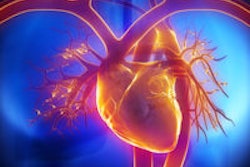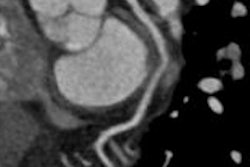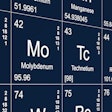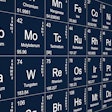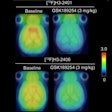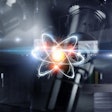A study comparing coronary CT angiography (CCTA) with SPECT myocardial perfusion imaging (MPI) in chest pain patients found that CT's radiation dose was lower and that it yielded fewer unpleasant experiences among patients, according to results published in the Annals of Internal Medicine.
On the other hand, there were no significant differences between the modalities in terms of the numbers of patients who had revascularization at one year, cardiac event totals, length of stay or rehospitalization, death rate, or the number of emergency visits -- rendering the exercise mostly a draw.
"The present study demonstrated no significant difference between initial CCTA and MPI in catheterization not leading to revascularization, a measure of performance in selecting patients for invasive management," wrote Dr. Jeffrey Levsky, PhD, and colleagues from Montefiore Medical Center and Albert Einstein College of Medicine.
The randomized trial aimed to compare CCTA with conventional noninvasive testing in an urban hospital with telemetry-monitored wards. It included 400 patients of multiple ethnicities and low socioeconomic status (mean age, 57 years) who presented with acute chest pain. Half of the subjects received MPI and half underwent CCTA (Ann Intern Med, June 9, 2015).
The primary outcome was cardiac catheterization not leading to revascularization within one year. The researchers also measured hospital stays, resource utilization, and patient experience.
The results showed that 30 (15%) of the CCTA subjects and 32 (16%) of the SPECT MPI subjects had cardiac catheterizations within a year. Fifteen (7.5%) in the CCTA group and 20 (10%) in the MPI group did not undergo revascularization, a difference that was not statistically significant (p = 0.44).
| CCTA vs. SPECT MPI for chest pain | |||
| Measure | CCTA | SPECT MPI | p-value |
| Catheterization within 1 year | 15% | 16% | 0.89 |
| No revascularization | 7.5% | 10% | 0.44 |
| Death | 0.5% | 3% | 0.12 |
| Emergency department visits | 63% | 58% | 0.31 |
| Outpatient visits | 23% | 21% | 0.72 |
| Radiation exposure | 24 mSv | 29 mSv | < 0.001 |
| Median length of stay | 28.9 hours | 30.4 hours | 0.057 |
Significantly more patients in the CCTA rated their experience favorably and said they would undergo the exam again (p = 0.003). Fourteen percent of CCTA patients and 23% of MPI patients rated their experience less positively, with a score of 5 or less on a scale of 1 to 10.
Finally, the CCTA and MPI groups showed no differences in outcomes or resource utilization over 40 months. However, compared with MPI, CCTA patients received less radiation and reported a more positive experience, the study team concluded.





